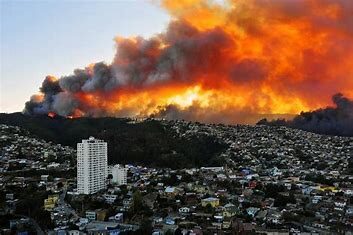The training program is an integral part of the consultation services provided as an in-house initiative to develop professional skills and guide participants within the organization. Carefully designed by the “Resilience Edge” team and delivered by experienced trainers, it ensures exceptional learning outcomes. To implement the program, the organization must arrange for a minimum of ten participants and handle all necessary logistical arrangements.
Course Description:
This course focuses on the principles and practices of sustainable resource management, which are essential for maintaining ecological balance and ensuring the long-term availability of natural resources. Participants will delve into various aspects, including sustainable land use, water resource management, biodiversity conservation, and sustainable forestry. The course equips participants with knowledge and strategies for sustainable resource management, including ecosystem-based approaches, integrated watershed management, and sustainable agriculture practices. Additionally, the course explores the economic and social dimensions of resource management, considering equity, livelihoods, and community engagement.
Course Objectives:
– To provide participants with an understanding of the principles and importance of sustainable resource management
– To familiarize participants with sustainable land use practices and strategies
– To equip participants with knowledge and skills for effective water resource management
– To explore biodiversity conservation approaches within the context of sustainable resource management
– To examine sustainable forestry practices and their role in resource management
– To consider the economic and social aspects of resource management, including equity, livelihoods, and community engagement
Course Learning Outcomes:
Upon completion of this course, participants will be able to:
– Understand the principles and significance of sustainable resource management
– Apply sustainable land use practices to optimize resource utilization and conservation
– Implement effective water resource management strategies for sustainability
– Apply biodiversity conservation approaches within the framework of resource management
– Identify and utilize sustainable forestry practices for resource conservation
– Consider economic and social factors in resource management, including equity, livelihoods, and community engagement
Who Should Attend the Course:
This course is suitable for professionals and individuals involved in natural resource management, environmental conservation, land management, forestry, agriculture, and community development, including:
– Environmental managers and officers
– Resource managers and conservationists
– Land-use planners and developers
– Foresters and forest managers
– Water resource managers and engineers
– Agricultural professionals and practitioners
– NGO staff working on resource management and conservation
– Government officials and policymakers involved in natural resource management
Course Features
- Lectures 20
- Quiz 0
- Duration 5 days
- Skill level Intermediate
- Language English
- Students 50
- Certificate Yes
- Assessments Self
- 5 Sections
- 20 Lessons
- 5 Days
- Day 1: Introduction to Sustainable Resource Management4
- Day 2: Sustainable Land Use Practices4
- Day 3: Water Resource Management4
- Day 4: Biodiversity Conservation and Resource Management4
- Day 5: Sustainable Forestry and Socio-economic Dimensions of Resource Management4





